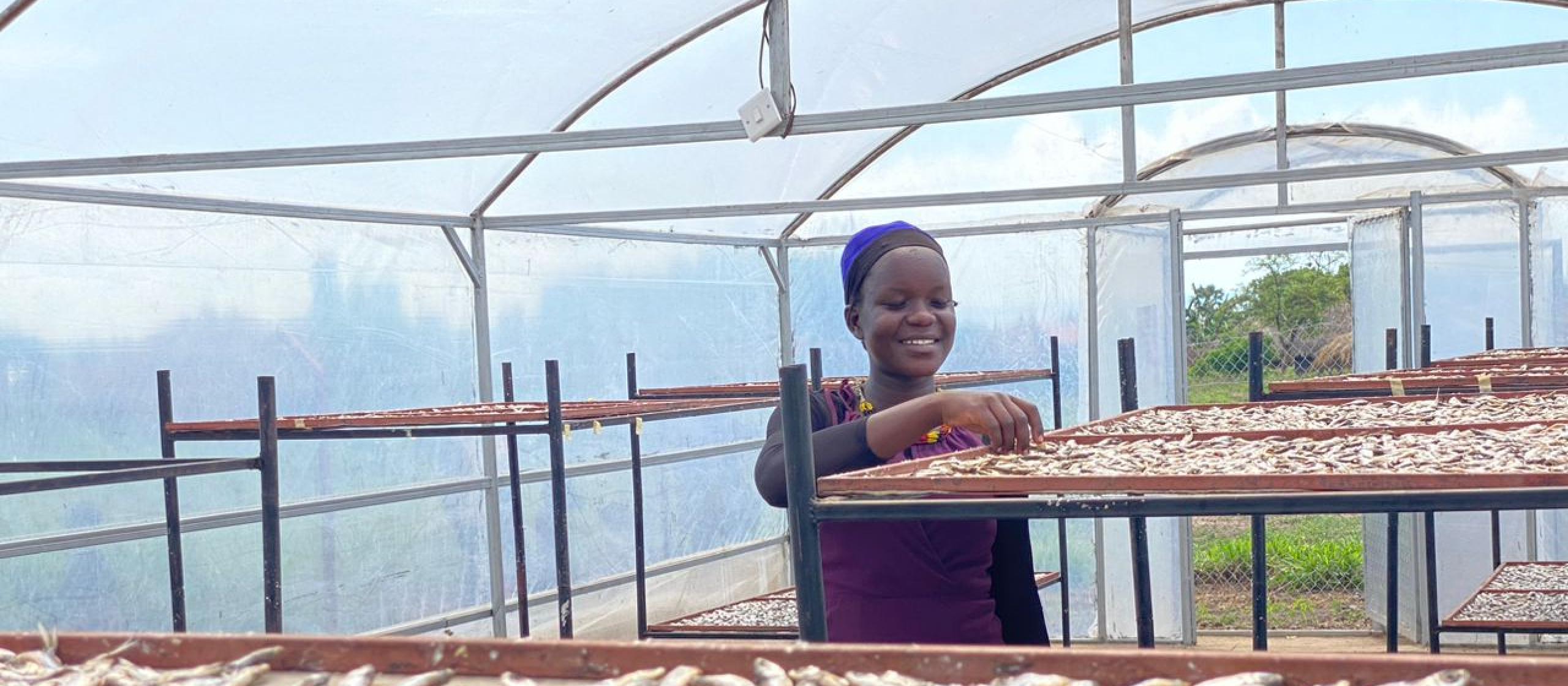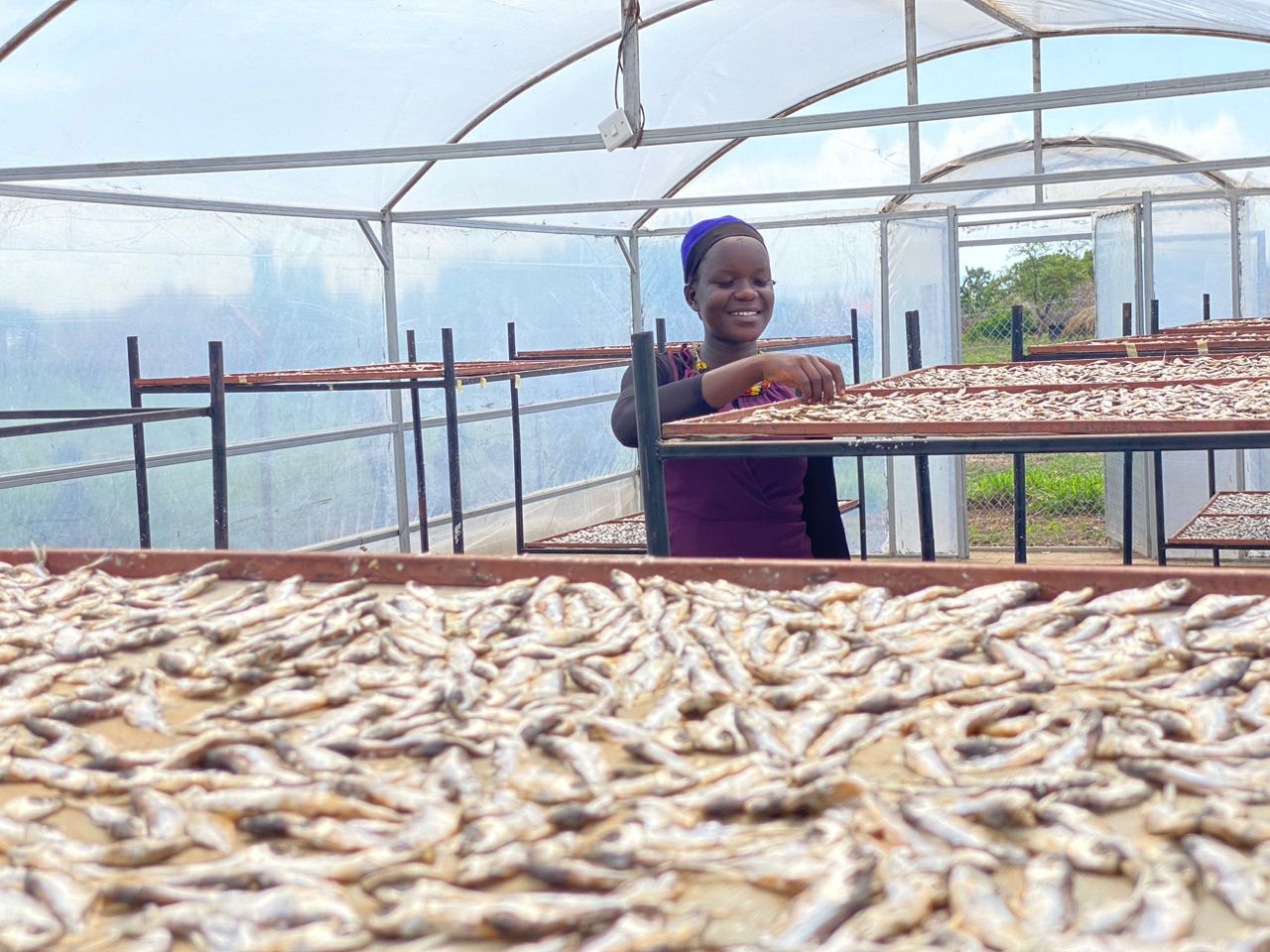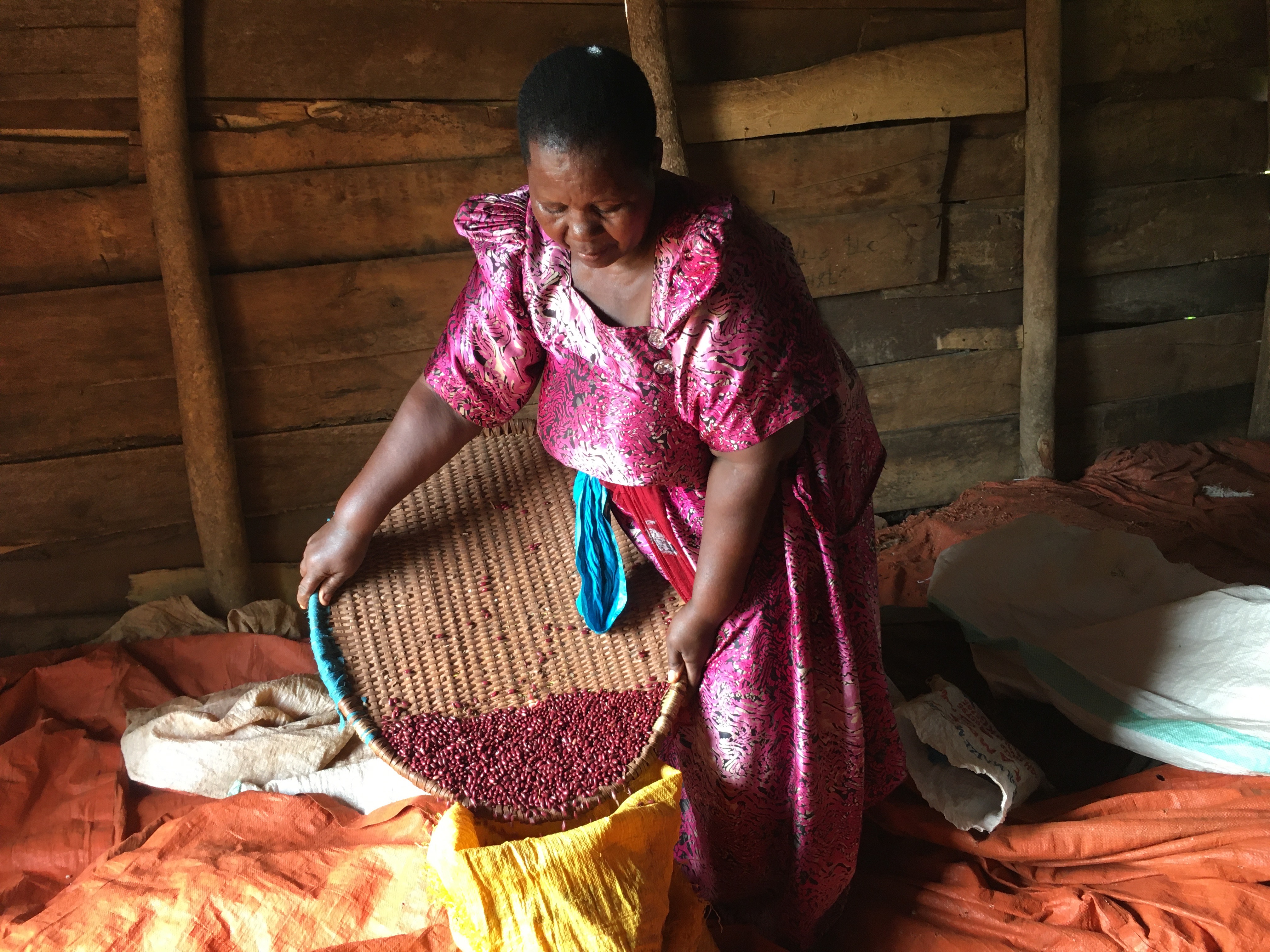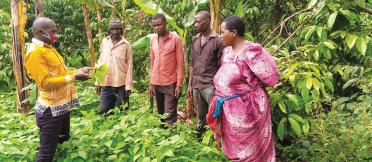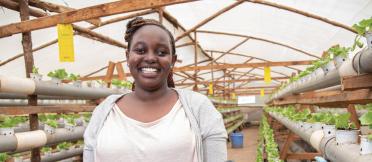My name is Amanna Bashir, a mother of three, one boy and two girls, aged 8, 5 and 2 years respectively. I am also a wife, a farmer and the Cwaranguta Women’s Group chairperson in Uganda. I started as a small fish farmer, and that’s when the project came in to impact women processing fish to improve the quality of their produce while boosting their income.
What would you consider an impactful outcome of the project’s intervention?
Before the NutriFish project, gender-based violence was rampant. Courtesy of the project, we learnt the benefits a peaceful union would birth not only as a family but at individual levels. This meant having the Cwaranguta Women’s Group morphing to have men participate in the collective activities. This was a game changer as my husband and I now run the business amicably.
The project stirred in me a saving culture. The production of Mukene (the silver cyprinid or the Lake Victoria sardine) is seasonal. At times, you can earn UGX 80,000 (A$33) from selling the fish; at other times, you can generate UGX 120,000 (A$49.5). Learning how to remain consistent on expenditures and savings no matter the season was vital, and this has been helpful for the group as we raised the bar from UGX500 (A$0.21) weekly contributions to UGX2,000 (A$0.83).
At a personal level, with extra funds, I am sustaining household needs and can contribute to paying the [school] fees on time. The narrative of kids being chased away for one reason or another and a lack of fees is no longer the norm.
It has also empowered me, which has earned me respect in my community, for how I dress and carry myself is not what it used to be. Even with all this, I can still save some money for myself. I am also a decision-maker in the home and confident.
Mukene has rich nutrition value, yet it is despised for its smell. But look at me; I am very healthy and beautiful and owe it to Mukene.
Initially, we would dry the fish through open sun drying, which meant the produce was exposed to dust, other elements and forms of contamination, especially during the windy season. However, with the solar tent driers, the produce is safe, hygienic and of better quality, per the market standards, which means better returns for me.
What does the future look like for you?
In 5 years, I look forward to enrolling my children in private schools. I also foresee an increase in sales. Before the project, I used to produce 2 basins of Mukene. With the projects’ intervention, I now produce 5 basins. Soon, I plan to produce 10 independently and an additional 10 for the group.
